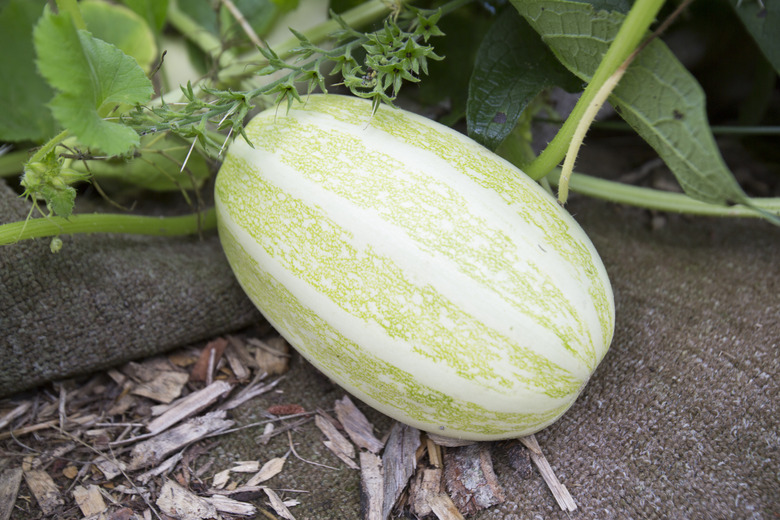How To Know When To Pick Spaghetti Squash
When you say you are growing squash, many people think of ubiquitous zucchini or those cute rounded, yellow summer squashes. But there is an entire other world of squash, winter squash. They have tough skins to help them store longer over winter. The key to enjoying homegrown spaghetti squash is to harvest it when it is ripe. So, how to tell when this winter squash is ripe? Take your pick among the various ways to tell if it is time to start harvesting spaghetti squash.
The Wonders of Winter Squash
Why grow winter squash, when you've just managed to give the last of those darn zucchini to the neighbors? Winter squash, like summer squash, is the cucurbit family, but it is an entirely different animal. Summer squash cook quickly and have a fresh, light taste, while winter squash take more time but deliver the creamy texture of a comfort food with a sweet flavor.
- When you say you are growing squash, many people think of ubiquitous zucchini or those cute rounded, yellow summer squashes.
Spaghetti squash looks like a winter squash from the outside, but it is actually a pretty unique veggie. If harvested when ripe, this squash cooks up to deliver spaghetti-like filaments that are delicious, healthy and perfect with spaghetti sauce. Just scrape them out with a fork and serve like you would pasta.
Growing a Spaghetti Squash Plant
It may sound like winter squash should be planted after the leaves fall, but that's not where it got its name. In fact, you need to plant squash seeds or seedlings in the spring after the final frost, when the soil temperature has risen to at least 60 degrees Fahrenheit. Plant in a sunny area after cultivating the soil well and working in a couple of inches of organic compost.
Spaghetti squash plant needs lots of elbow room. It sprawls all over the sunny garden bed. Many gardeners plant the squash in hills spaced a full yard apart, each with three or four plants. Others plant in rows 8 feet apart, sowing three to four seeds every 4 feet. Don't forget to irrigate. Be sure the plants get at least an inch of water a week through all of the stages of spaghetti squash growth.
- Spaghetti squash looks like a winter squash from the outside, but it is actually a pretty unique veggie.
- It may sound like winter squash should be planted after the leaves fall, but that's not where it got its name.
Harvesting Spaghetti Squash
Winter squash must ripen on the vine, and spaghetti squash is no exception as it won't continue to ripen after picking. So start harvesting spaghetti squash when it's ripe.
So, when is spaghetti squash ripe? There are a variety of tests you can use to figure out maturity, and a combination of them works best. First, there's the calendar method. Generally, spaghetti squash requires 100 days in the garden between planting and harvest. This should put you in the right month and perhaps the right week.
- Winter squash must ripen on the vine, and spaghetti squash is no exception as it won't continue to ripen after picking.
- First, there's the calendar method.
On the other hand, use the color test, too. Many experts suggest that a spaghetti squash is ripe when its outer skin turns a dull golden yellow. If it is gray or greenish, or a bright shade of yellow, it needs more time. In addition, the vines the squash is growing on will turn gray and start to shrivel.
Others recommend the touch test. Don't confuse this with an avocado that is best when it gives slightly. Winter squash is ripe when the skin is hard and doesn't give at all when you press it. If it's easy to get a fingernail into the skin of the squash, you'll have to wait longer.
- On the other hand, use the color test, too.
- Winter squash is ripe when the skin is hard and doesn't give at all when you press it.
Storing Spaghetti Squash
Even confirmed spaghetti squash fans won't want to gobble up dozens of squash in a week. That's when the beauty of winter squash comes into focus. You can store these squash in a cool, dry place for several months if you harvest them when they are ripe. Turn them occasionally in storage, every couple of weeks, and make sure they don't touch each other.
